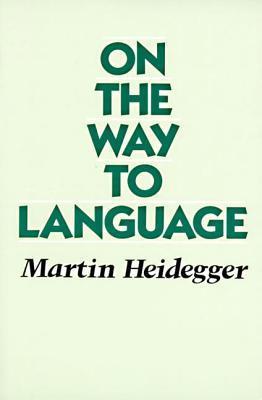What do you think?
Rate this book


200 pages, Paperback
First published January 1, 1959
ãThirst for knowledge and greed for explanations never lead to a thinking inquiry. Curiosity is always the concealed arrogance of a self-consciousness that banks on a self invented ratio and its rationality. The will to know does not will to abide in hope before what is worthy of thought.ã�
ãI believe, of every dialogue that has turned out well between thinking beingsã� as if of its own accord, it can take care that that undefinable something not only does not slip away, but displays its gathering force ever more luminously in the course of the dialogue.ã�
What is appropriated, the essence of the human, is brought into its essence through language, it remains appropriated over to the essence of language and the peal of silence. This appropriating occurs insofar as the essential unfolding of language, the peal of silence, requires mortals in order to sound out as the peal of silence for the hearing of mortals. Only insofar as humans belong within the peal of silence are humans as mortals, in their manner, capable of vocalized speech.